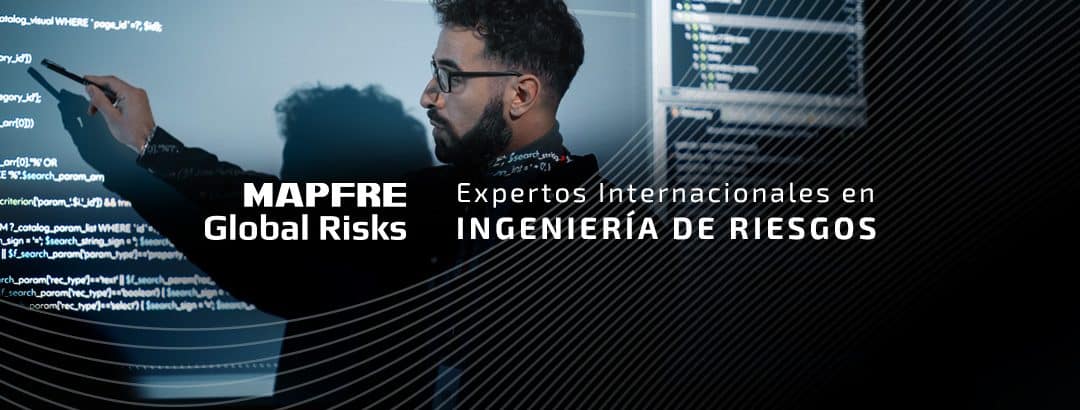Julia Maria Gomez de Avila Segade | 28/03/2023
A privileged geographical location, excellent telecommunications infrastructure and leadership in renewable energy, all make our country a strategic enclave for the installation of data centers in the coming years.
Spain faces the possibility of becoming a new hub for international commercial networks, as it was centuries ago with the Silk Road. In today’s technification environment, this would be thanks to the most consumed product circulating around the planet: data. In a globalized and digitized economy, where IT equipment and networks, such as 5G, enable the trusting of all storage capacity to “clouds,” one of the main challenges of big tech companies is the development of data containers for the billions of users using such “clouds.” And in that logistical foundation of the economy 2.0, which is composed of data centers, or more correctly, data processing centers, our country has a lot to offer.
A data processing center is where the “cloud” condenses into bricks and mortar. A physical space that houses numerous pieces of computer equipment—such as servers, storage systems, power supplies, networks, and communications—to deliver digital services to enterprises themselves or third parties. They are usually large buildings, compartmentalized into rooms and with sophisticated cooling and security systems, both digital and physical. We are therefore talking about true strengths in securing data flows on a global scale. And depending on their use, they can be of various different types:
-
-
- Hyperscale: To service public clouds (Google, Microsoft, AWS, etc.).
- Co-location: They allow different companies, multinationals or groups to store their data in one place, no matter where they physically operate.
- Hosting: The hosting of third-party web and applications.
- Interconnection: Facilitates communications between organizations.
- Internal use: Technological giants like Meta (Facebook, WhatsApp…) or Amazon use them to service their own business activity and users around the world.
-
A single data center can accommodate multiple uses and customers.
Spain is one of the most and best connected countries
within Europe, with strong fiber implementation
Towards convergence with FLAP countries
There are currently four main players in data processing in Europe, the so-called FLAP countries, named after their corresponding cities with the highest processing capacity: Frankfurt, London, Amsterdam and Paris. However, 2022 has been the year in which Spain stepped up by taking the lead in southern Europe to become the region’s leading digital hub, doubling its capacity in just 12 months. According to data from the sector report by SpainDC, the association that brings together the main operators of this market in Spain, our country’s growth will be exponential in the coming years, converging in capacity with the FLAP countries until reaching figures very close to those of Paris in 2026. In that same study, a scenario is foreseen by which Madrid—taken as a reference as being Spain’s main data center hub—would increase its capacity to 621 MW by the end of 2026 and whose accumulated direct investment up to that year could be more than €6 billion. To which an indirect investment of at least another €10 billion would have to be added.
Strengths of the region
In such a convergence scenario, Spain would be reducing its lag behind the market leaders thanks to a number of advantages that attract both big tech companies and investors:
A privileged geographical scenario for data reception and distribution, taking into account the optimal latency (time it takes for a data packet to go to a server and return) of most applications; for video calls, for example, it is below 65 milliseconds, while for online video games it is less than 50 ms. Spain would be within the range of scope to establish reliable communications with regions such as North America, Latin America, Central Europe and North Africa.
To this position, one also has to add excellent telecommunications infrastructure, as it is a strategic point of connection between continents through undersea cables, which have been in place for years. The Iberian Peninsula would be a key nodal point for such cables as they come from North America, Latin America and Africa, interconnecting such networks across Europe, including the British Isles. Another competitive advantage of telecommunications is critical to that distribution: fiber connectivity. Spain is one of the most and best connected countries within Europe, with strong fiber implementation throughout the territory, even in rural areas, thanks to an extensive infrastructure composed of backbone networks and dark fiber (fiber optics installed but not used) and an enviable 5G deployment.
Spain can be expected to embrace this great opportunity to become a key technology hub in Europe-based data processing
Finally, another major virtue of the Spanish market is its leadership in renewable energy. In a very turbulent energy scenario such as we have today, the data center industry, like all other sectors, faces the energy constraints and cost overruns due to the war in Ukraine and strict energy efficiency requirements to meet the sustainable development goals set by the EU. In this regard, Spain is a leader in Europe in renewable energy production, has no great dependence on Russian gas and aims to further increase its wind and photovoltaic generation capacity in the coming years. A point that greatly reassures companies contemplating these long-term projects while also building investor confidence.
All of these factors, together with the explosion of remote communications and working from home during the pandemic that triggered strong demand for data flow, have meant that new actors have entered the market for large public cloud platforms that see in Spain a region of great attraction for their development. Thus, hyperscalers such as AWS, Microsoft, IBM or Google and other giants such as Meta, have announced investments in different parts of the country over the years and have indicated it as being a strategic region for their “clouds”. In addition, data center operators that have been in Spanish territory for more than 30 years are also expanding their infrastructure and services with ambitious expansion plans. Spain can be expected to embrace this great opportunity to become a key technology hub in Europe-based data processing. Something that, far from being a passing trend, seems set to be an important pillar of the global economy for decades to come.
Keep reading… How drone technologies will support MAPFRE to improve data driven decision





